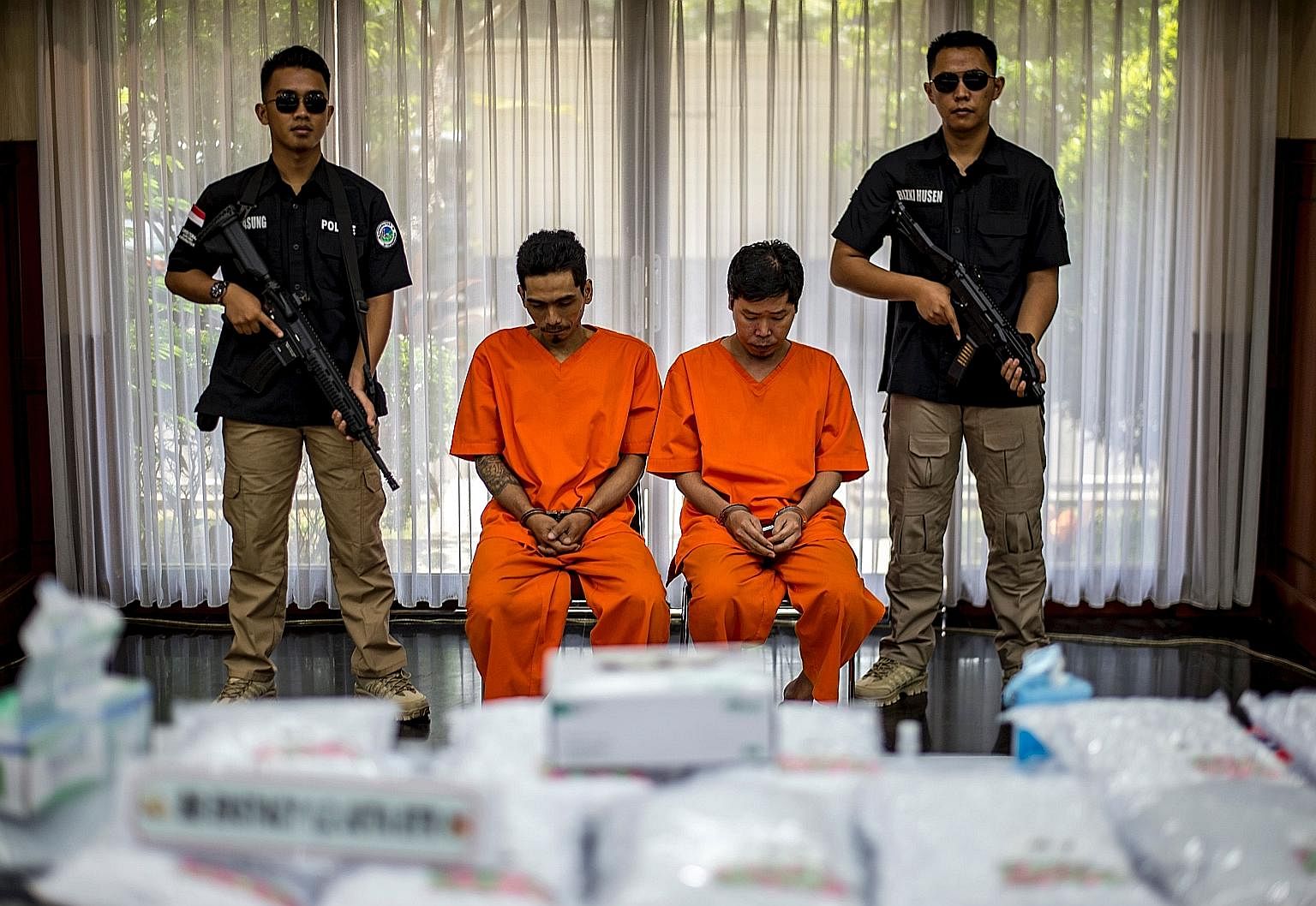President Joko Widodo's recent shoot-on-sight order, aimed at drug dealers and traffickers in Indonesia, has unnerved the nation's rights groups.
Many people are drawing comparisons between him and his Philippine counterpart Rodrigo Duterte, whose drug war killings have left thousands dead.
Most lawmakers and observers in the country, however, are backing the President, who is known by the popular nickname Jokowi.
Indonesia needs to get tough on its war on drugs now, or it may be too late once drug dealers, especially foreign syndicates, entrenched themselves here, they say. There is already a rise in the trafficking of Ecstasy, heroin and methamphetamine - better known as crystal meth - into Indonesia.
Indonesian armed forces chief, General Gatot Nurmantyo - who has been roped in to support the war on drugs - said the latest data indicates that at least 250 tonnes of methamphetamine have been smuggled into Indonesia from China. He said: "Just one tonne of methamphetamine will be enough for five million people to consume. This is a serious threat to us."
Various estimates have put the number of illicit drug users at 6.4 million.

-
60
Number of drug suspects Amnesty International believes have been killed by the police so far this year.
18
Total number of drug suspects killed last year.
6.4m
Estimated number of illicit drug users among Indonesia's population of about 250 million.
Indonesia has a population of about 250 million people.
Any let-up in enforcement will result in an endless stream of social problems and the rise of organised crime in Indonesia, said analysts.
Mr Joko, in a speech to Parliament ahead of Indonesia's 72nd Independence Day celebrations on Aug 17, said: "We firmly declare a war against drug dealers who are ruining the future of our younger generation."
President Joko's directive follows a series of high-profile drug busts. One of them involved an attempt in July by a Taiwanese drug syndicate to smuggle one tonne of crystal meth in Banten province, about 140km west of Jakarta.
One of the nine suspects tried to escape during the raid and was shot dead by police narcotic officers.
Amnesty International said it believes at least 60 drug suspects, including at least eight foreigners, have been killed by the police so far this year, compared with just 18 last year.
The police have yet to confirm these figures, but many human rights groups have started to question if the killings have had any impact on Indonesia's war on drugs.
Amnesty Indonesia director Usman Hamid said: "Not only is this unlawful, it will also do nothing to address the root causes that lead to drug use in the first place."
Others, like Human Rights Watch's Asia division deputy director Phelim Kine, suggest that efforts to address the problem of drugs and crime "require the security forces to respect everyone's basic rights".
The prevailing thinking in local law enforcement is that the number of drug dealers killed still pales in comparison to the number of people who have died from substance abuse, said National Narcotics Agency (BNN) spokesman Sulistiandriatmoko.
A 2015 survey by the University of Indonesia found that between 30 and 40 people die from drug abuse each day in the country, he added.
Mr Sulistiandriatmoko, who goes by one name, said he believes the drug situation is at an "emergency" stage, and Indonesia cannot afford to let up on its fight against drugs.
In fact, the problem is so widespread that the police are roping in the Indonesian military to help, just like they have in the fight against terrorists. The move could lead to an escalation of Mr Joko's anti-drug war.
"Drug smugglers are the nation's enemies, hence the military should have a right to use force to fight these enemies," said Mr Sulistiandriatmoko.
But his boss and BNN chief Budi Waseso has come out to assure critics that Indonesia will not replicate Mr Duterte's bloody war on drugs.
The new "shoot-on-sight" policy has also raised questions over Mr Joko's stand on the death penalty, and the effectiveness of capital punishment as an anti-drug deterrent.
Indonesia has some of the world's toughest drug laws, and remains one of 33 countries that still use capital punishment for drug-related offences. Since it lifted a four-year moratorium on the death penalty in 2013, 18 people - all drug traffickers, most of them foreigners - have been sent to face the firing squad.
However, Ms Claudia Stoicescu, a researcher at the University of Oxford's Centre for Evidence Based Intervention, said executions and crackdowns on drug offenders have not yielded any long-term benefits for Indonesia.
She said: "Far from having a deterrent effect, the number of drug-related crimes in Indonesia increased in the months after the executions were carried out in January and April 2015."


